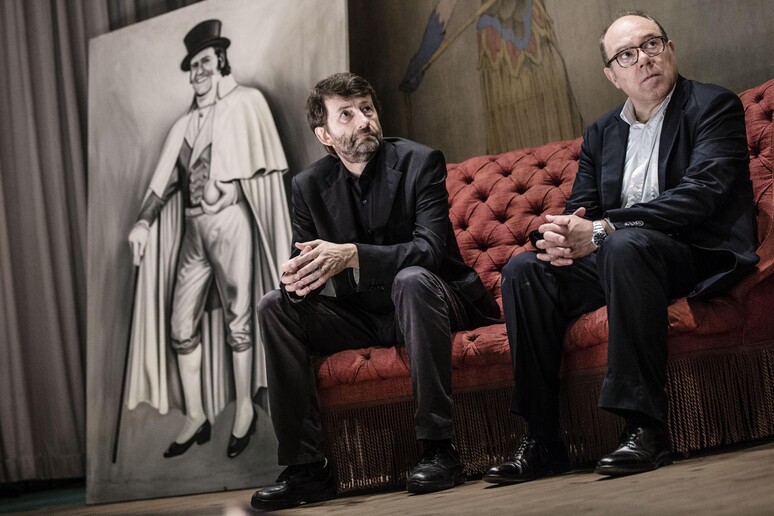The three De Chirico works
'stored' at the Galleria Nazionale d'Arte Moderna will be
brought back to late comic genius Alberto Sordi's home as it
becomes a museum, as will the letters and various keepsakes kept
at the Lazio region archives and parts of his 'Storia di un
Italiano' now being restored at the Cineteca Nazionale.
In "not less than two years, possibly three" - ANSA was
told by Italo Ormanni, former magistrate and now head of the
Fondazione Museo Alberto Sordi - the great actor's large villa
looking out over the Baths of Caracalla will be open for
'interactive visits.
"After so much bad press," said Carlo Verdone, referring to
two ongoing court cases, one a lawsuit in which 70 relatives are
claiming his inheritance and one criminal proceedings concerning
domestic workers, "the time has come to speak of other things
and to restore dignity to this place."
Culture Minister Dario Franceschini underscored that "it is
a duty not only towards Sordi in order to respect his will, but
also one towards the country itself. Conserving, valorizing and
opening this place which keeps the memory of Alberto Sordi alive
and in which you can breath the air of the history of Italian
cinema. This villa is a mysterious place that watches over
Sordi's mythological world. Opening it up marks a great
opportunity for all Italians."
Verdone, head of the Fondazione Alberto Sordi per i
Giovani, which the actor created himself in 2001 to help
disadvantaged but talented young people, is also advisor to the
Fondazione del Museo Alberto Sordi and was the one to give the
media a tour of the rooms. He frequented the home for a long
time and filmed it with his brother Luca for the documentary
'Alberto il Grande!', and has many stories to tell.
On June 15 Sordi would have turned 95, and the date was
chosen by the two foundations for that very reason for the
opening to the public of this home that "Sordi guarded like a
fortress", Verdone said.
His grey Fiat 124 is parked at the entrance next to an
equestrian monument named after Nestor, like the horse of the
film by the same name. All is in semi-darkness. Anyone passing
through Piazzale Numa Pompilio and raising their glance towards
the huge villa has noticed the closed blinds over the years.
Verdone said that "I could see Sordi inside, almost a
ghost. He kept the blinds half-way down and when I said
respectfully 'Alberto, pull them a bit up', he would say 'no, it
would ruin the curtains and pictures'. "
There is the living room and many ornaments, silver in the
showcase, a porcelain animals collection and a yellow velvet
sofa like that in many middle-class homes, as well as the study
with the awards, photos (including many with Pope Wojtyla),
books and encyclopedias.
Verdone points out the chair "where Sordi read the scripts
and when a thud was heard it was that he didn't like the
screenplay. This was the signal for the domestic workers to pick
up the writings that had been thrown to the floor and burn
them."
The most light-filled part is the barber's room, lined in
mirrors with pictures by Maccari and Zavattini, though it is the
barber's chair and the white couches that dominate "like in a
fantastic dressing room of an important artist", Verdone added.
His orderly wardrobe is attached, with cataloged boxes and
camel suits and ties. Then comes the dining room, the staircase
and the theater where the presentation was held.
In the theater, with Ceroli sculptures on the sides, Sordi
used to watch films and throw parts and dinners in the 1960s.
"Once," Verdone said, Jack Lemmon and Walter Matthau came.
Then, between the '60s and the '70s, regular guests included
Fellini and Masina, the screenwriters Sonego, Amidei, Piccioni
and Scola and many cardinals."
After his sister Savina's death in 1972 the house fell into
mourning and the theater was closed.
While awaiting a true museum, a summer film festival will
be held (June 27-July 3) with free film screenings curated by
Verdone and with the collaboration of the Cineteca Nazionale and
the Rome town council.
A series of other initiative will also be held in Sordi's
memory.
ALL RIGHTS RESERVED © Copyright ANSA











